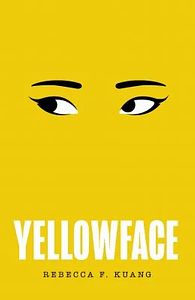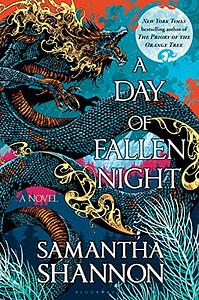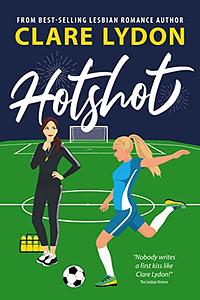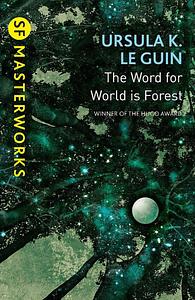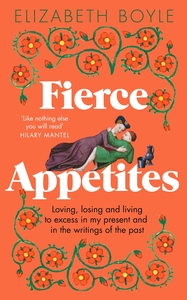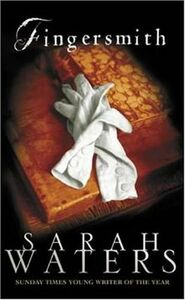Take a photo of a barcode or cover
alicechris's Reviews (202)
Yeah, this is brilliant. I started off listening to the abridged audio version made for BBC radio and glad I switched because this book is all about the details. The narrative voice is exceptionally crafted and absolutely excruciating. I kind of wish there had been a little bit more in there for people like me who aren't that interested in twitter or publishing - but this also made me realize I've never thought that deeply about the industry that produces the books I read. I did feel there could have been more payoff at the end (it was more oh! She's back? Than shit it all makes sense now! ) but that also betrays that this is has a lot more to it than most thrillers.
Edit - I've come back to this to up the review to 5 stars because I can't stop thinking about this book.
Edit - I've come back to this to up the review to 5 stars because I can't stop thinking about this book.
This is such a weird book and I couldn't help reading it in a day. It absolutely dragged me in and I'll be thinking about it for a while. I've left it unsatisfied and suppose this is intentional, but it does slightly frustrate me. It takes a lot for a book to spook me, but this one's done it!
This was so good! The worldbuilding is phenomenal (as it is in Priory) and despite Shannon juggling four perspectives throughout the book I was invested in all of them. I was really impressed by the sense of time passing through the book without a loss of stakes or momentum.
I've knocked a half star off because it took me so long to get through the first part of the book, and because I think the whole book is maybe longer than it needs to be. The switching between perspectives so frequently at the start just left me confused and I would have preferred to have longer chunks with each narrator. By the third part, Shannon had me deeply invested, but I would have finished the book a lot faster if that had come earlier.
It's also worth saying that the LGBTQ+ representation in this book is just so good - high fantasy is often off-putting to me as its major works are just so male, and the matter of fact way Shannon writes about queerness in a fantasy setting will stay with me (Wulf and Thrit's romance maybe could have done with more developing though? ).
I've knocked a half star off because it took me so long to get through the first part of the book, and because I think the whole book is maybe longer than it needs to be. The switching between perspectives so frequently at the start just left me confused and I would have preferred to have longer chunks with each narrator. By the third part, Shannon had me deeply invested, but I would have finished the book a lot faster if that had come earlier.
It's also worth saying that the LGBTQ+ representation in this book is just so good - high fantasy is often off-putting to me as its major works are just so male, and the matter of fact way Shannon writes about queerness in a fantasy setting will stay with me (
This is a really weird book that I wanted to like but ended up feeling just sort of average about. I love Morris's designs and had a vague idea he'd done some communist writing, and then found this by chance. After reading a lot of dystopia last year (Parable of the Sower + Talents) I was excited to try a utopian novel.
I don't want to be too critical because the book is a product of its time, and some of it did really resonate with me - finding meaning in crafts and nature, and a vision of England (although nations don't seem to exist anymore) as a 'garden, where nothing is wasted and nothing is spoilt'. Although some changes in this future seem very personal (Morris didn't like Manchester and so it ceased to exist), his vision of what a city could be will stick with me, and feels really relevant to current environmentalism (especially as someone who wrote a dissertation on urban green space).
It because clear pretty quickly there isn't a place for me in Morris's utopia - women are mostly housekeepers (at one point Morris talks about the emancipation of women as being pointless...) and there are so many descriptions of women as being more attractive in the future. Morris's self-insert also has a creepy romance with a 20 year old (he is in his fifties, and you can kind of infer he has a wife and kids). Health problems will apparently all disappear under communism too, can't wait!
I find Morris's backwards looking communism intriguing - at some points he seems to fall into the Victorian myth of a previous golden era of democracy (or in this case communism I guess) ended by the Norman conquest, and so his ideals feel less about potential, and so less radical, than they could do. This probably also explains a thread of what I'm calling 'Thames Valley patriotism' in the book.
On its own terms, this book is pretty good, but I do feel I've lost some respect for Morris now unfortunately. One of the good things about reading someone else's utopia is it's helped me sharpen what my own might be, and reminded me of Octavia E. Butler's 'The Book of Martha' - no one is going to be satisfied by anyone else's ideal world, so it's not surprising that Morris's pitch didn't totally win me over.
I don't want to be too critical because the book is a product of its time, and some of it did really resonate with me - finding meaning in crafts and nature, and a vision of England (although nations don't seem to exist anymore) as a 'garden, where nothing is wasted and nothing is spoilt'. Although some changes in this future seem very personal (Morris didn't like Manchester and so it ceased to exist), his vision of what a city could be will stick with me, and feels really relevant to current environmentalism (especially as someone who wrote a dissertation on urban green space).
It because clear pretty quickly there isn't a place for me in Morris's utopia - women are mostly housekeepers (at one point Morris talks about the emancipation of women as being pointless...) and there are so many descriptions of women as being more attractive in the future. Morris's self-insert also has a creepy romance with a 20 year old (he is in his fifties, and you can kind of infer he has a wife and kids). Health problems will apparently all disappear under communism too, can't wait!
I find Morris's backwards looking communism intriguing - at some points he seems to fall into the Victorian myth of a previous golden era of democracy (or in this case communism I guess) ended by the Norman conquest, and so his ideals feel less about potential, and so less radical, than they could do. This probably also explains a thread of what I'm calling 'Thames Valley patriotism' in the book.
On its own terms, this book is pretty good, but I do feel I've lost some respect for Morris now unfortunately. One of the good things about reading someone else's utopia is it's helped me sharpen what my own might be, and reminded me of Octavia E. Butler's 'The Book of Martha' - no one is going to be satisfied by anyone else's ideal world, so it's not surprising that Morris's pitch didn't totally win me over.
Fierce Appetites: Loving, losing and living to excess in my present and in the writings of the past
Brilliant! That this book flows so well whilst exploring such a range of content (the author's life in 2020 month by month, her life up to 2020, and of course medieval Ireland) is a testament to her skills as a writer and communicator - I came out of the book feeling a little jealous of her students! A lot of historians I've met are very interesting people but it's very much part of the discipline to remove yourself from your work, so I really enjoyed this style of writing and I hope it catches on. As an ex-historian left wondering what it was all for post-degree this was a reminder of how much I love history and the good that can be done (and the art that can be made) with it.
adventurous
fast-paced
This is one of the first Doctor Who books I've read and it's a really good example of how the medium can be used for Doctor Who stories - this is much more complicated and gory than the TV show would really be able to do (especially in the eighties). That being said, I'd love an audio adaptation of this.
I'm a big fan of the fifth doctor but there aren't that many episodes of his I find myself coming back to. This book characterises him well and expands on his relationships with Tegan and Nyssa (it's set just after Snakedance).
The plot of this is generally good and there are some excellent bits of dialogue, but the writing sometimes feels stilted and the writer occasionally forgets Nyssa isn't human despite making a point of this in other places. There are a few too many loose ends that get individually tied up at the end, which drags a little.
If you're out to try a Doctor Who novel, I'd recommend this one!
I'm a big fan of the fifth doctor but there aren't that many episodes of his I find myself coming back to. This book characterises him well and expands on his relationships with Tegan and Nyssa (it's set just after Snakedance).
The plot of this is generally good and there are some excellent bits of dialogue, but the writing sometimes feels stilted and the writer occasionally forgets Nyssa isn't human despite making a point of this in other places. There are a few too many loose ends that get individually tied up at the end, which drags a little.
If you're out to try a Doctor Who novel, I'd recommend this one!
